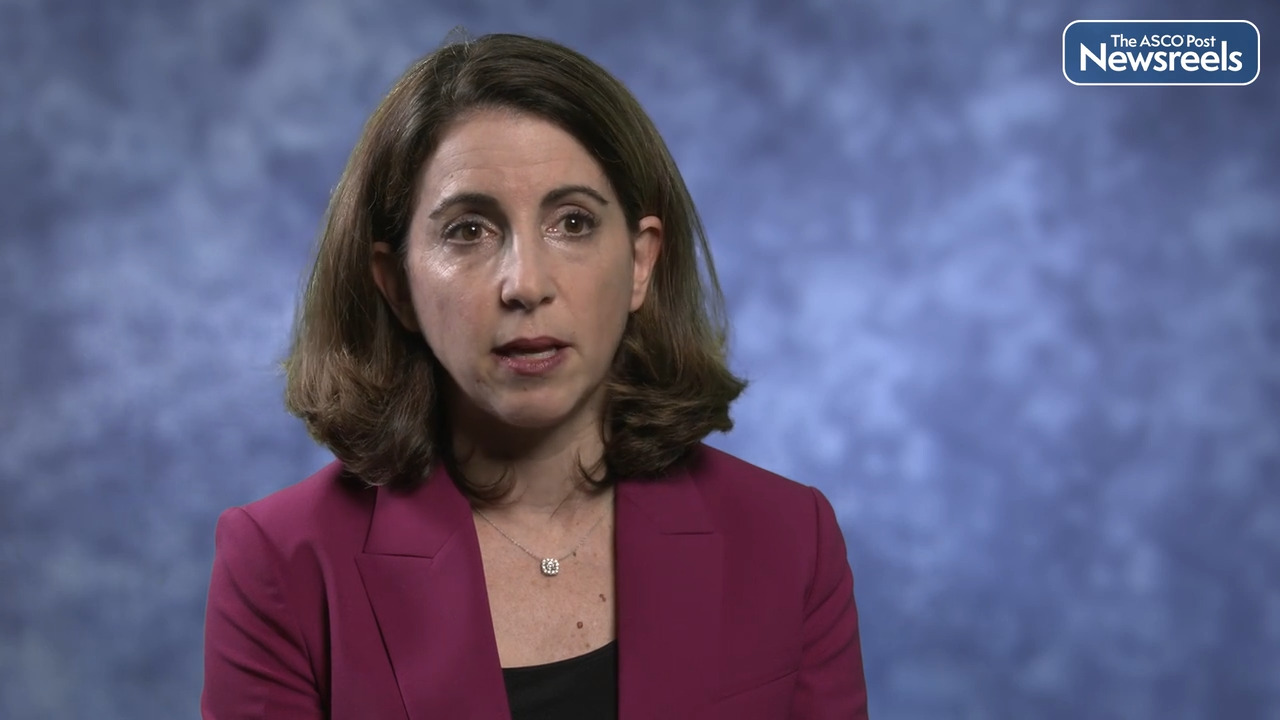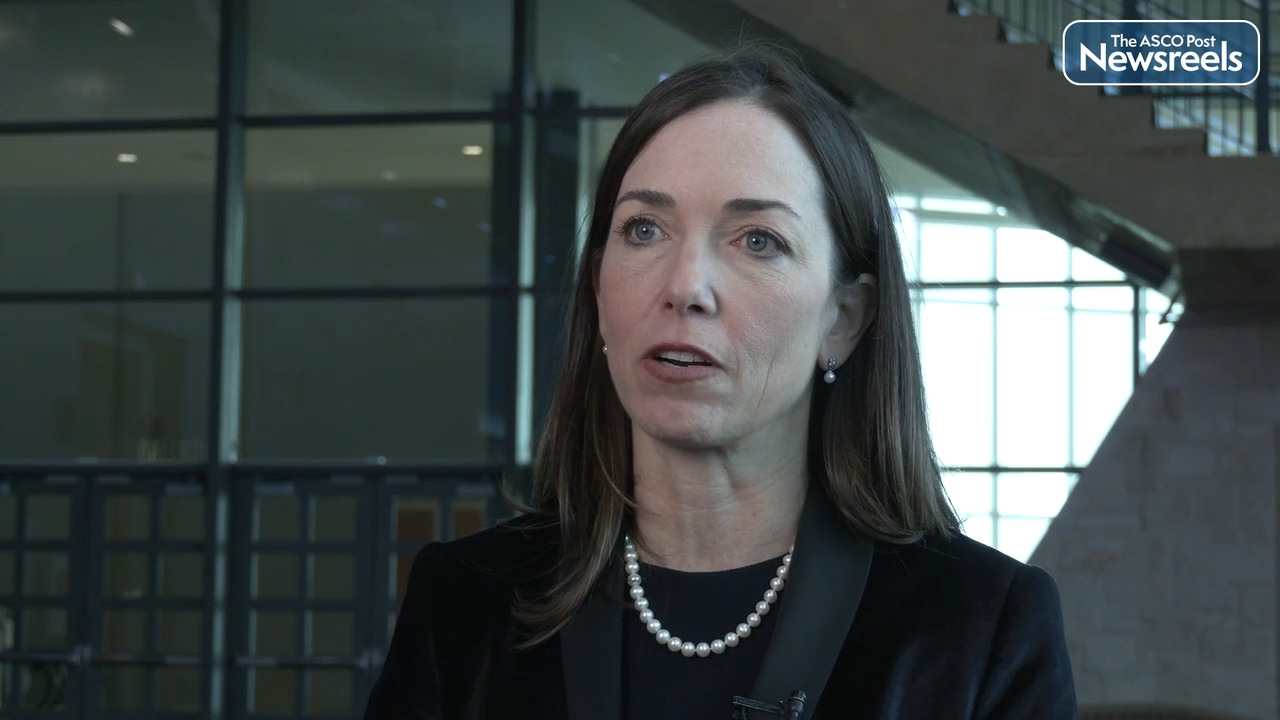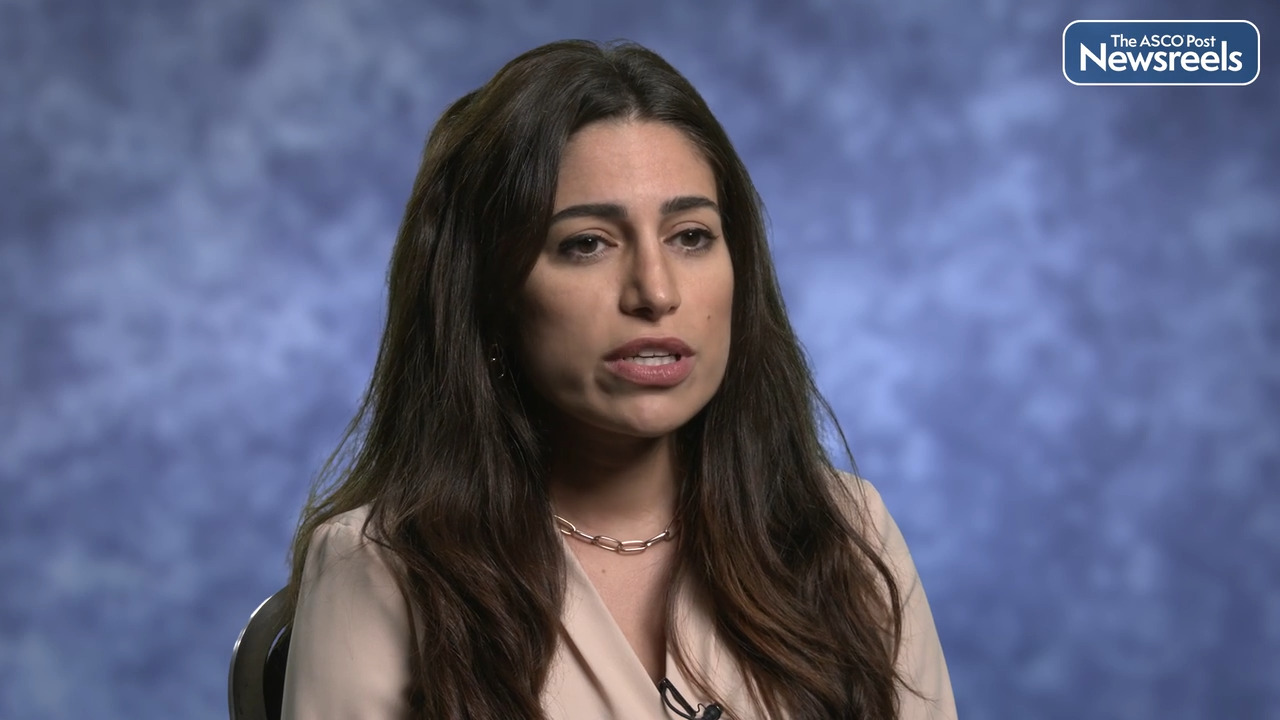Per Karlsson, MD, PhD: New Data on Breast-Conserving Surgery, With or Without Radiotherapy
2022 San Antonio Breast Cancer Symposium
Per Karlsson, MD, PhD, of Sweden’s University of Gothenburg and the Sahlgrenska Comprehensive Cancer Center, discusses results from the POLAR study, which was a meta-analysis of three clinical trials of breast-conserving surgery with or without radiotherapy. POLAR is the first genomic classifier that appears not only to be prognostic for locoregional recurrence, but also predictive of radiotherapy benefit. Although patients with breast cancer who had a high POLAR score benefited from radiotherapy, patients with a low score did not, and may be candidates for omission of radiotherapy after breast-conserving surgery (Abstract GS4-03).
Transcript
Disclaimer: This video transcript has not been proofread or edited and may contain errors.
We have performed a patient level meta-analysis and we have included three different studies, studies randomizing patients to radiotherapy or no radiotherapy. The studies included were the Swede BCD 921 study, the Princess Margaret study, and the Scottish Conservation RT Trial. The patient level meta-analysis has the objective to analyze the performance of the POLAR signature as a prognosticator for locoregional recurrences in the new RT arm and also as a potential predictive assay for radiotherapy benefit.
It's well known that radiotherapy reduces the risk for locoregional recurrences in all different clinical subgroups today. There are definitely some need to find new classifiers to understand which patient we can omit the radiotherapy for.
We have within the Swedish trial identified a signature for RT remission, but that signature must be validated in further studies. Now we have performed this patient-level meta-analysis, but to send some word about the development of the signature in the Swedish study, we have collected all the blocks from the tumors and we have punched the tissues and isolated RNA, and this RNA has given us gene expression info. We have used array-based methods for that.
Using this information, we have filtered the genes most prognostic for locoregional recurrences in the new RT arm. We have further [inaudible 00:01:52] the genes at the enrichment analysis. This filtering has resulted in genes that were fed into a regression model. This regression model resulted in the POLAR score.
The POLAR score consists of 16 genes. The gene functions here is about immune response and also about proliferation. Now we have used this POLAR score and applied that in this patient meta-analysis, and we could see that POLAR could prognosticate the locoregional recurrence in all the new RT arm in all these three different studies. We also find that the POLAR RT had a significant interaction, which means that this classifier is a predictive for radiotherapy benefit. But all this has been done retrospectively. So going further to use it in clinical practice, I think we need further validation, but this is, to our knowledge, the first genomic classifier that can predict radiotherapy benefit. So hopefully in the future we can use this assay to know which patient we can omit radiation. So that's the way forward for us.
Related Videos
The ASCO Post Staff
Marleen Kok, MD, PhD, of the Netherlands Cancer Institute, discusses the most important advances in early breast cancer treatment during the past year for patients with triple-negative, HER2-positive, and estrogen receptor–positive disease. Dr. Kok also addresses long-term treatment toxicities and quality of life.
The ASCO Post Staff
Erica L. Mayer, MD, PhD, of Dana-Farber Cancer Institute, discusses findings from the PACE study of patients with endocrine- and CDK4/6 inhibitor–pretreated estrogen receptor–positive/HER2-negative metastatic breast cancer who were randomly assigned to fulvestrant alone; fulvestrant and palbociclib; or fulvestrant, palbociclib, and avelumab. Combining palbociclib with fulvestrant beyond disease progression on a prior CDK4/6 inhibitor regimen did not improve progression-free survival compared with fulvestrant alone. A longer progression-free survival when a PD-L1 inhibitor was added to fulvestrant and palbociclib deserves further study. A baseline circulating tumor DNA analysis suggests that the potential benefit of palbociclib after progression on a prior CDK4/6 inhibitor may be influenced by ESR1 or PIK3CA status (Abstract GS3-06).
The ASCO Post Staff
Lisa A. Carey, MD, and Joannie M. Ivory, MD, MSPH, both of the University of North Carolina at Chapel Hill, discuss the higher frequency and treatment implications of nonluminal A or high-risk tumors in Black and younger women. In this study, PAM50 and 21-gene assays revealed different demographic patterns by race and age (Abstract PD1-08).
The ASCO Post Staff
Sara A. Hurvitz, MD, of the University of California, Los Angeles, Jonsson Comprehensive Cancer Center, discusses phase III findings from the DESTINY-Breast03 study, which showed that second-line treatment with fam-trastuzumab deruxtecan-nxki (T-DXd) led to longer overall survival compared with ado-trastuzumab emtansine (T-DM1) in patients with HER2-positive metastatic breast cancer. Patients treated with T-DXd had a 36% lower risk of death than those treated with T-DM1 (Abstract GS2-02).
The ASCO Post Staff
Yara Abdou, MD, of the University of North Carolina, discusses results from the RxPONDER SWOG S1007 study, which showed that non-Hispanic Black women with hormone receptor–positive/HER2-negative breast cancer with one to three involved lymph nodes and a recurrence score of ≤ 25 have worse outcomes than non-Hispanic White women. In addition, Black patients were more likely to accept treatment assignment than their White counterparts and were just as likely to remain on estrogen therapy at 6 and 12 months, suggesting that outcome differences may be less likely attributable to lack of treatment compliance within the first year (Abstract GS1-01 ).





